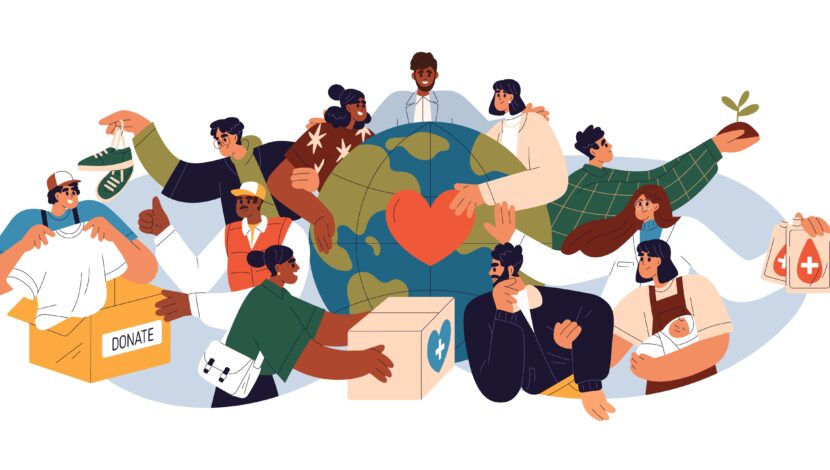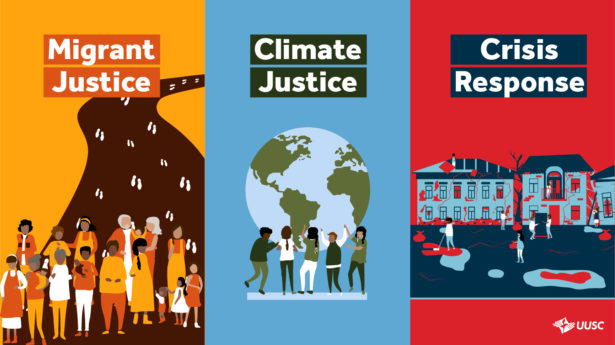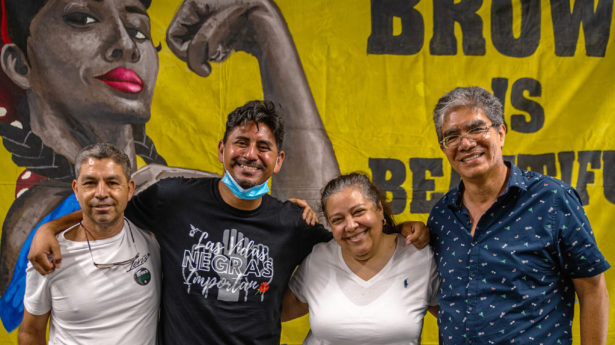The Unitarian Universalist Service Committee advances human rights through grassroots collaborations.
The INGO Industry Has a Serious Problem

By Deanna Johnson on March 24, 2023
The humanitarian aid sector has a problem. As it currently functions, the frameworks comprising mainstream humanitarian aid are so defective that the result is an altogether broken system. Actually, the system is not “broken”—it is functioning exactly as it was designed to function. The humanitarian aid industry is a Western concept designed by the governments of the Global North to protect their assets in the Global South while purporting to uphold the ideals of democracy, human rights, and liberty. At the end of the day, mainstream humanitarian aid advances the colonial project without calling itself “colonization” by promoting the ongoing dependency of recipient countries and does not actually aim to develop real, durable, or sustainable solutions.
Funding streams into the space provide the most insight into this. Currently, the typical flow of aid funds starts at the government level and then passes through multiple agencies and organizations before reaching the intended population. In the case of Burma, for example, the U.S. government appropriates funds for use by the Department of State’s Bureau of Population, Refugees, and Migration (PRM) and the U.S. Agency for International Development (USAID). Those agencies in turn award grants to international non-government organizations (INGOs), who then subgrant those funds to local civil society organizations on the ground.
The first problem with this model is that the INGO passthrough agencies end up taking large percentages of those funds for their own administrative needs since many of these INGOs subsist primarily off government grants and they need to pay their employees. After the local organizations receive their portion of the funds, they are then saddled with a load of paternalistic reporting requirements that often place large and unrealistic burdens on partners who end up spending as much time collecting receipts and conducting pre- and post-evaluations as they do providing tangible support to their community, leading to burnout and overwork.
Further, government grants impose strict bureaucratic rules on grassroots partners and end up tying their hands and stifling their creativity and adaptability. During a recent UUSC trip to Thailand, numerous local organizations cited the myriad regulations that accompany government-issued funds. For example, organizations commented on the fact that, in some cases, all purchases must be pre-approved before the money can be spent. This does not allow for quick changes in programming in cases of natural disaster, humanitarian crises, changing political landscapes, or anything else. In one instance, a UUSC partner even cited an experience it had with a large INGO in which a scheduled payment was withheld until the organization provided “proper” financial reporting. This resulted in the organization being unable to purchase rice critical for feeding people in refugee camps.
Therefore, local organizations are forced to choose between accepting INGO funds and limiting the impact they can have or rejecting INGO funds and being creative in finding other funding sources, which is often the community itself. As the Karen Peace Support Network recently documented, approximately 50% of funding raised by Karen-led civil society organizations at the Thai-Burma border has come from individual donations, mainly those in the diaspora, which is not sustainable.
Humanitarian aid should not operate this way. Rather, nations whose wealth has been systematically extracted from those in the Global South need to be willing to work in community with those most impacted by widespread human rights abuses and other humanitarian crises. This means disrupting policies that keep those communities perpetually dependent on a colonial aid system without receiving any sustainable support.
UUSC has begun to work towards that world. Instead of approaching partnerships with grassroots organizations with an investor-like mentality that devalues the role of local organizations, UUSC collaborates with local civil society organizations throughout the life of the partnership and follows their lead in developing solutions by and for the community they support. Further, UUSC now provides all of its funding as unrestricted or general operating support, meaning 100% of the funds provided can be used by local partners in the ways they have decided themselves. UUSC’s Senior Partnership Officers also engage in regular communication with local partners to offer support and resources when necessary and limit the amount of reporting required from the partners to reduce burden.
UUSC will continue to work in solidarity with its local partners around the globe to support them in meeting the needs of their communities. By rejecting the humanitarian aid status quo, UUSC upholds its mission to advancing human rights and social justice around the world, partnering with those who confront unjust power structures, and mobilizing to challenge oppressive policies.
Image credit: Adobe

